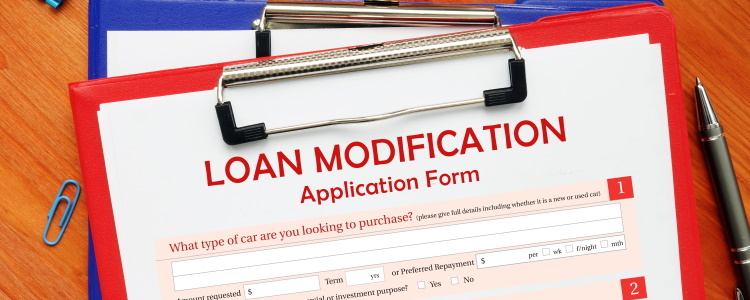If you're sensing trouble on the horizon with your auto loan, then a car loan modification could be the solution. Borrowers who need help in repaying their loans, either temporarily or more permanently, may be able to work with their lender in resolving the situation with a loan modification.
What’s a Car Loan Modification?
An auto loan modification typically involves a simple adjustment to your loan. Often, it means moving your payment due date or sometimes changing your interest rate. It could help you avoid repossession or late fees to stay current on your payments. In some cases, when a loan modification only temporarily pauses your loan payment, it's called a deferment.
A loan modification may sound similar to another option, refinancing, but it's not the same thing. To refinance, you pay off one loan and replace it with another, which can be done by your current lender or a different one. Your original lender is typically the only person that can make modifications to your loan since you're not paying it off – you’re simply modifying your current loan contract with the intention of making it easier to afford.
Believe it or not, auto lenders would prefer you to keep the car and keep paying on your loan. If the lender has to move forward with a repossession, it costs them time and money, so they’d rather avoid that messy situation. Typically, they’re hesitant to move forward with a loan modification unless it’s necessary for you to successfully repay the loan, so not everyone is eligible for this assistance.
When a Loan Modification Could Be for You
Auto lenders may be willing to make a loan modification if you’ve maintained a good history with the car loan. In some cases, you may be required to complete a hardship letter that outlines why the modification is necessary to continue repaying.
If you’re in one or more of the following situations, you may qualify for a loan modification:
- Financial struggles – Sometimes things simply don’t go as planned, and it could interfere with your ability to repay your auto loan. If you’ve lost your job, gotten laid off, or you’ve been furloughed, then a lender may be willing to issue a deferment or modify your loan terms.
- Change in expenses – If you have other unexpected expenses that come up, such as medical bills, a loan modification may help you afford your car loan.
- Change in income – If you’ve had a change in income, a lender may be able to accommodate your situation with a loan modification.
- Your vehicle is underwater – We don’t mean in a lake; we’re talking about your vehicle’s equity position. If your car is worth less than your loan amount, it means it’s in a negative equity position or is underwater on the loan. Some lenders may be willing to modify a loan to get you out of the negative equity because it poses a risk to them as well. Keep in mind that not all auto lenders are able to help in this position, and it can depend on how you’ve handled the loan so far, and how long it's been active.
It’s important to remember that your past payment history on the loan has a major impact on your eligibility for a loan modification – we can’t stress it enough. And the sooner you contact your lender, the more likely they may be to work with your unique circumstances that require loan modification.
Modification Not an Option?
If you or your loan aren’t eligible for a loan modification, or your lender can’t work within your situation, then refinancing your vehicle may be a good route to explore.
As we mentioned earlier, refinancing involves paying off your current loan and replacing it with another. In nearly all cases, borrowers that refinance their vehicle are looking for a lower monthly payment. If your credit score has increased since the start of your car loan, then you have a higher chance of getting approved for a lower interest rate and refinancing overall.
To lower your car payment while refinancing, you can typically extend your loan term or lowering your interest rate. But keep in mind that if you just extend your loan term without lowering the interest rate, then it means more interest charges over the course of your loan.
Refinancing lenders typically require that your car isn’t over ten years old, has less than 100,000 miles, and that you’ve stayed current on your loan payments. They may also require that you’ve had the loan for at least one year. Most borrowers look for another lender to refinance with. However, your current lending institution may be willing to refinance your car if you meet the requirements.
Last Resort In Avoiding Default
When a loan modification or refinancing just isn't available for you, it may be time to consider selling your car for something more affordable.
Most dealerships accept trade-ins that run. And if you have equity in your vehicle, it's even better for you. Equity can be used to lower the selling price of your next car or help you meet the down payment requirement of an auto lender. Borrowers with lower credit scores are usually expected to have a down payment, and a trade-in can help alleviate the stress of fulfilling that stipulation.
If driving all over town looking for a dealership that can accommodate your unique credit situation doesn’t sound very appealing, then you can choose Auto Credit Express. We’ve already done the hard work of locating dealers that can work with less than perfect credit, and we want to connect you with one in your local area. Start immediately by filling out our free auto loan request form.
















